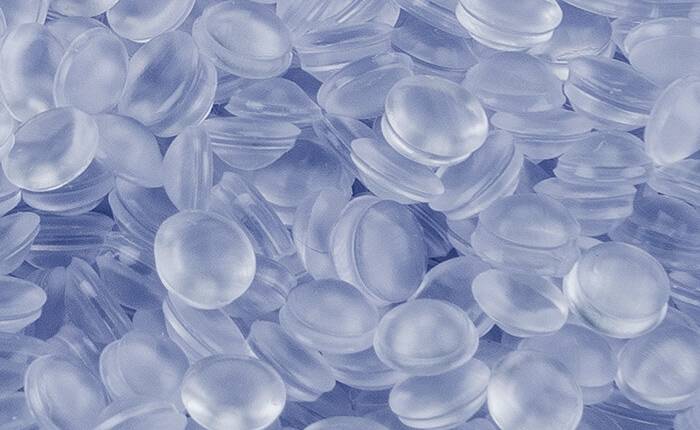Nov . 06, 2024 12:11 Back to list
Exploring the Benefits and Applications of Polypropylene Panels in Modern Construction
The Versatility and Applications of Polypropylene Panels
Polypropylene panels are increasingly becoming a popular choice in various industries due to their remarkable properties, versatility, and cost-effectiveness. Made from a thermoplastic polymer called polypropylene, these panels are lightweight yet robust, making them suitable for a range of applications. Here, we'll explore the characteristics of polypropylene panels, their benefits, and the numerous areas where they find practical use.
Characteristics of Polypropylene Panels
Polypropylene is a polymer known for its excellent chemical resistance, durability, and flexibility. Polypropylene panels, therefore, inherit these qualities, offering a material that can withstand harsh environmental conditions without significant deterioration. These panels are also waterproof, making them ideal for applications in humid environments. Moreover, they are available in various colors and finishes, allowing for aesthetic versatility alongside functionality.
One of the most remarkable features of polypropylene panels is their resistance to UV radiation. This quality makes them suitable for outdoor applications, where exposure to sunlight can lead to fading and degradation in other materials. Their lightweight nature also simplifies handling and installation, reducing labor costs and increasing efficiency in construction and manufacturing processes.
Benefits of Polypropylene Panels
The benefits of polypropylene panels are numerous. First and foremost, they are recyclable, aligning with the growing demand for sustainable materials in today's eco-conscious market. The recycling potential reduces landfill waste and offers a second life for the materials, making them an attractive choice for environmentally conscious consumers and businesses.
Another significant advantage is the cost-effectiveness of polypropylene panels
. Compared to metals or other heavy-duty materials, polypropylene provides a robust alternative at a fraction of the cost. This affordability makes them accessible for a wide range of applications, from personal projects to large-scale industrial uses.polypropylene panel

Additionally, the ease of fabrication is a crucial benefit. Polypropylene panels can be easily cut, shaped, and welded, allowing for customization to meet specific project requirements. This flexibility fosters creativity in design while ensuring durability and performance remain intact.
Applications of Polypropylene Panels
Polypropylene panels are utilized across various sectors due to their advantageous properties. In the construction and architectural industries, they are employed as cladding materials, wall partitions, and ceilings. Their lightweight nature facilitates construction, while their resistance to moisture and chemicals makes them ideal for environments like laboratories and food processing facilities.
In the automotive industry, polypropylene panels are widely used for interior components, such as door panels and dashboard elements. Their impact resistance and lightweight characteristics contribute to improved fuel efficiency while maintaining safety standards.
The packaging sector also leverages the benefits of polypropylene panels. From containers to pallets, these panels provide a durable solution that minimizes product damage during transport. Their chemical resistance ensures that they can safely store various products, including hazardous materials.
Furthermore, the medical field benefits from polypropylene panels, which are used in the production of surgical instruments and storage cabinets that require cleanliness and sterility. The non-toxic nature of polypropylene ensures that it meets the stringent health and safety standards necessary in medical applications.
Conclusion
In summary, polypropylene panels represent a blend of versatility, affordability, and practicality. Their unique properties allow them to serve various industries effectively, from construction and automotive to packaging and medical applications. As technology and innovation continue to evolve, it is likely that the use of polypropylene panels will expand further, reinforcing their position as a fundamental material in modern manufacturing and design. Embracing the benefits of polypropylene not only enhances functionality but also promotes sustainability, making it a wise choice for future developments.
-
High-Quality PPR Pipes and Fittings Durable ERA PPR & PVC PPR Solutions
NewsJul.08,2025
-
Black HDPE Cutting Board - Durable, Non-Porous & Food Safe HDPE Plastic Cutting Board
NewsJul.08,2025
-
High-Quality CPVC Panel Durable HDPE & PVC Panels Supplier
NewsJul.08,2025
-
Double PE Welding Rod Supplier - High Strength, Durable & Versatile Welding Solutions
NewsJul.07,2025
-
High-Quality PVC-O Pipe Supplier Durable 75mm PVC Pipe & Connections Leading PVC Pipe Company
NewsJul.07,2025
-
HDPE Drainage Pipe Supplier – Durable & Corrosion-Resistant Solutions
NewsJul.06,2025

